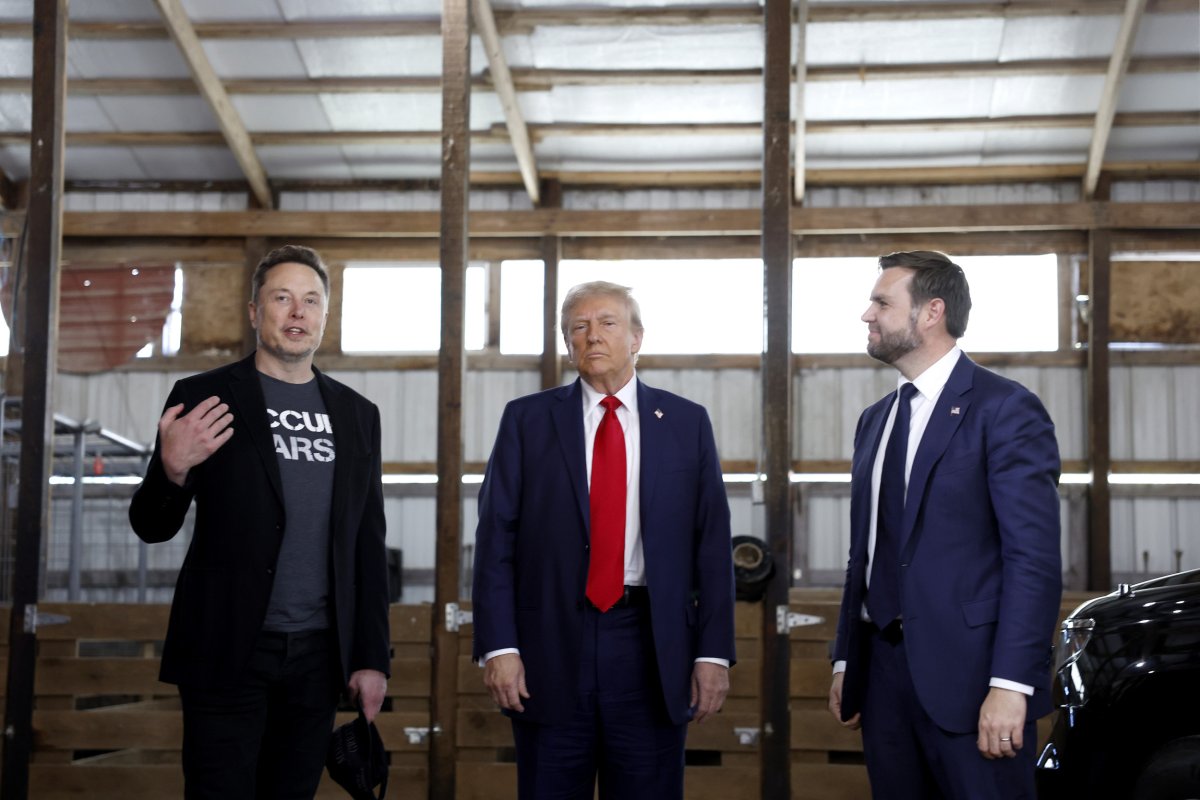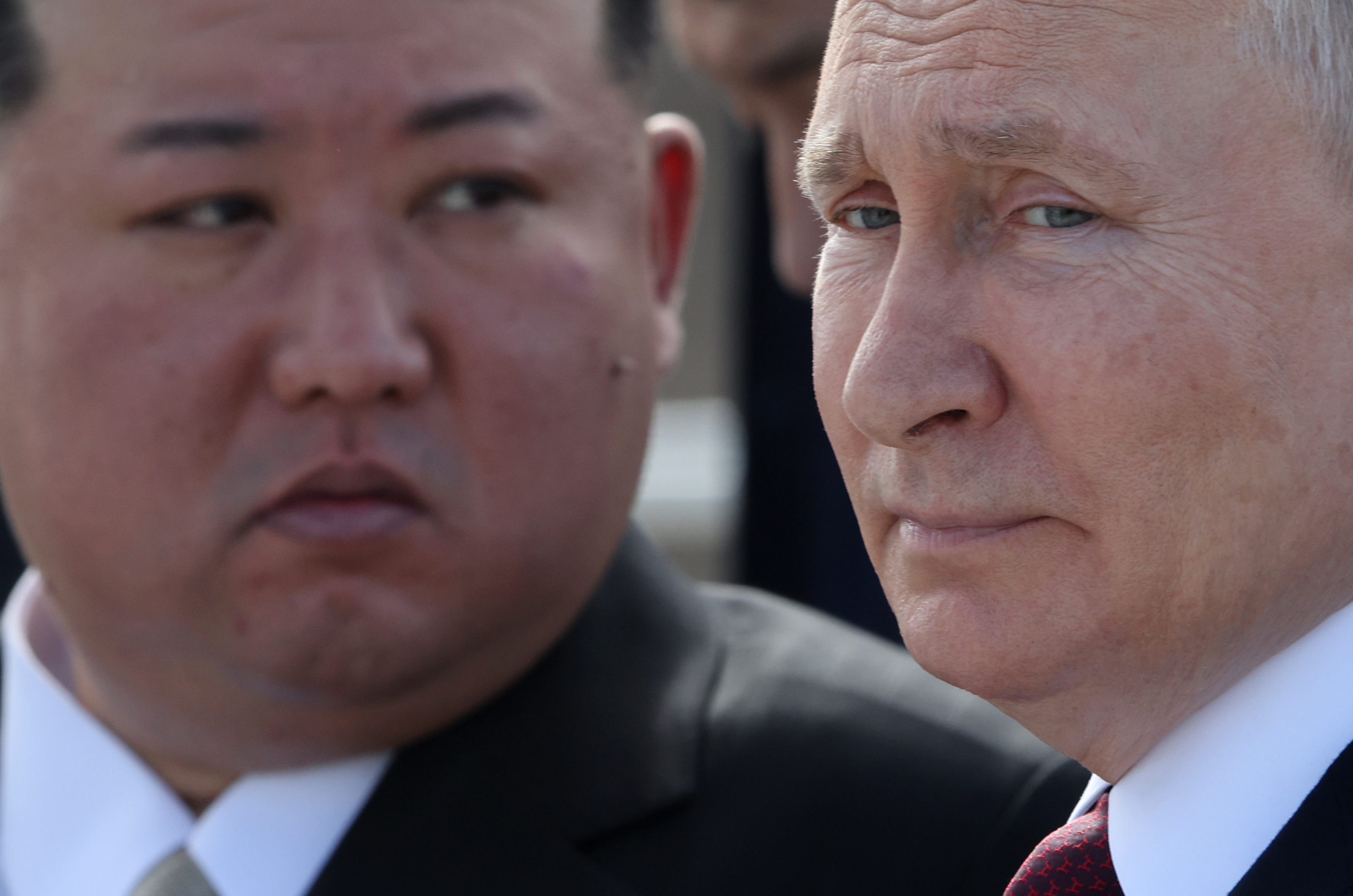A new wave of right-wing technologists has surged into Donald Trump's orbit, intertwining Silicon Valley's influential figures with the Republican Party's agenda.
As the president-elect prepares for his second term, prominent tech leaders, including Elon Musk and Peter Thiel, are poised to shape not only technology policy but also the broader direction of the nation.
Why It Matters
Trump's growing alliance with this faction highlights a significant shift in Silicon Valley's political dynamics, traditionally perceived as liberal strongholds, that could reshape both the tech industry and American governance.

Key figures such as Elon Musk, who pledged over $200 million to Trump's 2024 presidential campaign, and venture capitalist David Sacks are leveraging their influence to secure policy shifts favoring deregulation and aggressive technological innovation. Both men, alongside billionaire Peter Thiel, are colloquially referred to as "the PayPal Mafia" on account of their involvement in the creation of the online payment system.
Trump's close ties with tech moguls, particularly those focused on defense technologies like drones and surveillance systems, suggest the potential for a rapid expansion of militarized technology under his administration. As reported by The Intercept, companies such as Anduril and Palantir, both connected to Trump allies, are poised to benefit from policies aimed at advancing military AI capabilities.
What To Know
The Trump-Silicon Valley nexus is anchored by influential figures like venture Thiel, a long-time supporter of Trump's presidency. Thiel's protégé, Vice President-elect JD Vance, is expected to bridge the gap between the administration and tech investors. Together, they represent a group of technologists skeptical of traditional institutions and motivated by a vision of unregulated innovation.
Musk, CEO of Tesla and owner of X (formerly Twitter) has been named co-lead of the newly formed federal spending initiative known as the Department of Government Efficiency (DOGE), a role that enables him to directly influence federal budget decisions. Musk's DOGE co-leader will be entrepreneur and erstwhile Republican presidential candidate Vivek Ramaswamy, whose investment firm was backed in part by Thiel.
Meanwhile, Sacks will serve as Trump's "crypto czar," focusing on cryptocurrency and artificial intelligence, areas that have already attracted substantial investment from Silicon Valley.
Several other Thiel associates are reported to be under consideration by Trump for roles in his second administration. Jacob Helburg, a senior advisor at one of Thiel's most prominent companies, Palantir, has been tapped as Under Secretary of State for Economic Growth, Energy, and the Environment. And Michael Kratsios, who held roles at Theil-run funds has been nominated to be the next Director of the Office of Science and Technology Policy and science adviser to the president.
The interactive graphic below details these links and more now connecting the president-elect to this powerful and close-knit network of largely conservative so-called "tech bros."
Changing Silicon Valley's Culture
Other big names in Silicon Valley who previously appeared less enthusiastic about Trump have now changed their tune.
In 2021, Trump was banned from what was then called Twitter for his role in allegedly inciting violence during the Capitol riot on January 6, with statements condemning his actions flying in from the biggest names in big tech.
"The shocking events of the last 24 hours clearly demonstrate that President Donald Trump intends to use his remaining time in office to undermine the peaceful and lawful transition of power to his elected successor, Joe Biden," Meta CEO Mark Zuckerberg wrote the day after the incident in which lawmakers were evacuated from the House chamber and five people died.
"We believe the risks of allowing the President to continue to use our service during this period are simply too great," Zuckerberg said.
Fast forward to January this year, and Zuckerberg announced that his platforms would be dismantling fact-checking process and "prioritizing speech," acknowledging that his sites have been "too politically biased," conceding to the exact criticism that Trump had leveled at big tech since he first entered politics.
Also in January, Zuckerberg appointed long-time Trump friend Dana White, the CEO of UFC, to Meta's board of directors.
Other big tech CEOs, such as Tim Cook and Sam Altman, have donated $1 million to Trump's inauguration fund. Google parent Alphabet tripled its donation from 2017.

What People Are Saying
Casey Burgat, a former congressional staffer and professor of politics at George Washington University, told Newsweek: "Big tech leaders like [Jeff] Bezos and Zuckerberg are navigating a delicate balancing act: maintaining good relations with a government that has openly threatened their business models while mitigating potential regulatory or legislative crackdowns."
"Their overtures to Trump—whether through visits to Mar-a-Lago or policy shifts—reflect a pragmatic effort to protect their companies' interests in an administration known for its punitive approach toward perceived opposition. By adopting more "pro-speech" policies and engaging directly, they aim to reduce scrutiny while adapting to the shifting political winds that could redefine their industry's operating landscape."
Burgat also said that Trump's new administration provided an ideal platform for those within the tech industry looking to expand on their personal brand, saying, "For individuals like Musk and [Vivek] Ramaswamy, aligning with Trump's government offers potential influence over regulatory policies that directly impact the tech and venture capital industries.
"They stand to benefit from a government willing to roll back antitrust enforcement, loosen content moderation rules, and deregulate key sectors like artificial intelligence, energy, and biotech."
Brian Hughes, a spokesman for the Trump-Vance transition team said: "President Trump is surrounding himself with industry leaders like Elon Musk as he works to restore innovation, reduce regulation, and celebrate free speech in his second term. There has been an effort in the Washington bureaucratic swamp to stifle innovation with more regulation and higher taxes, but President Trump will deliver on his promise to encourage American leadership in crypto and other emerging technologies."
What Happens Next
Trump will be inaugurated on January 20. Musk and Ramaswamy have pledged to hit the ground running, and have already planned widespread cuts to several departments and regulations.
For now, the question remains whether this merger of tech and politics will benefit the broader public—or deepen the entrenchment of power among America's wealthiest and most influential players.


.png)

















 English (US) ·
English (US) ·